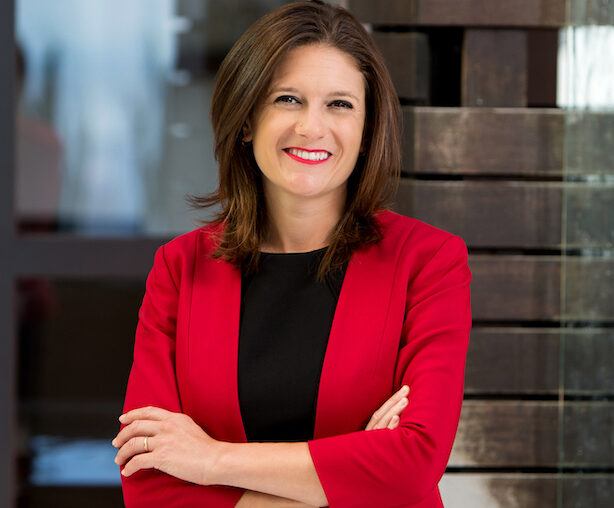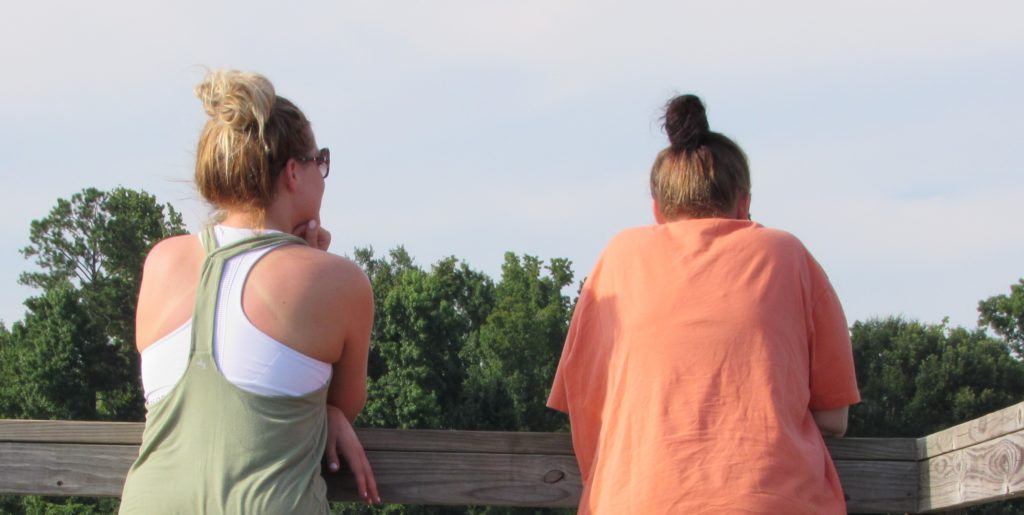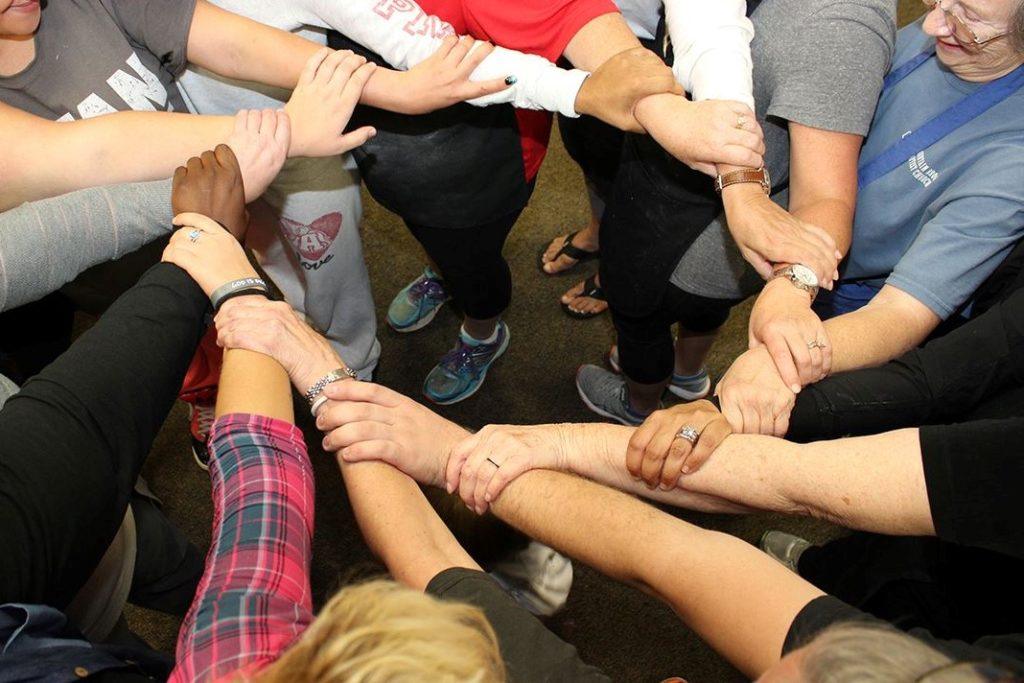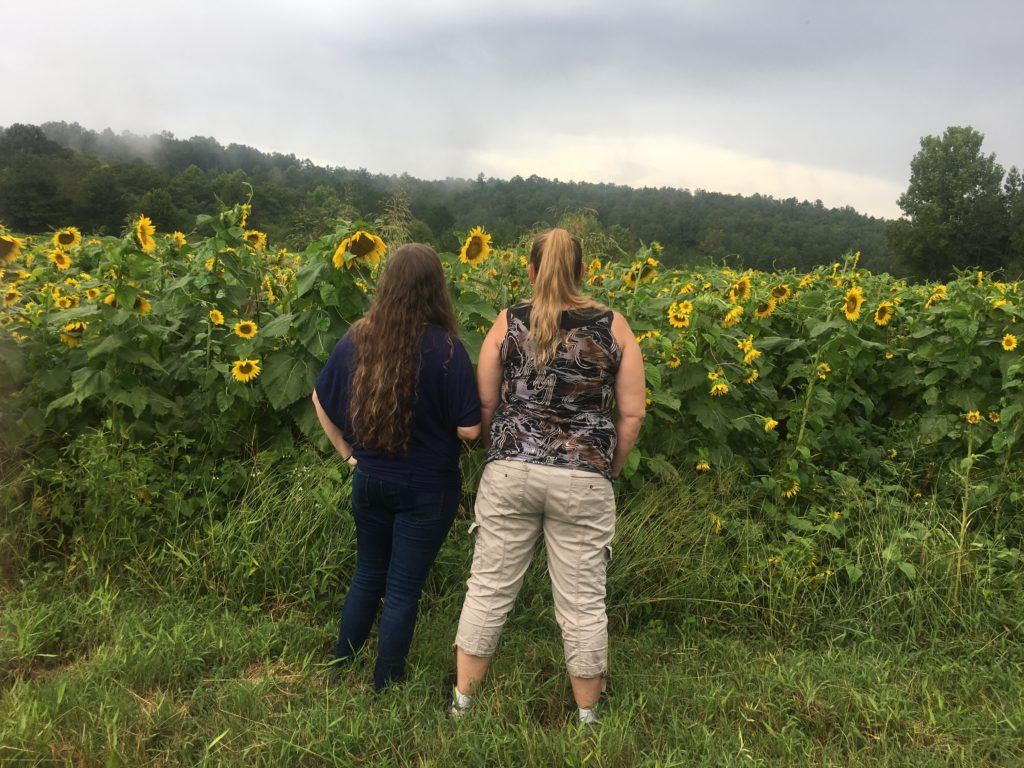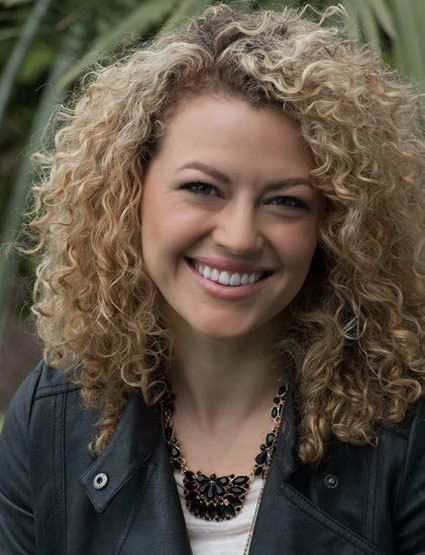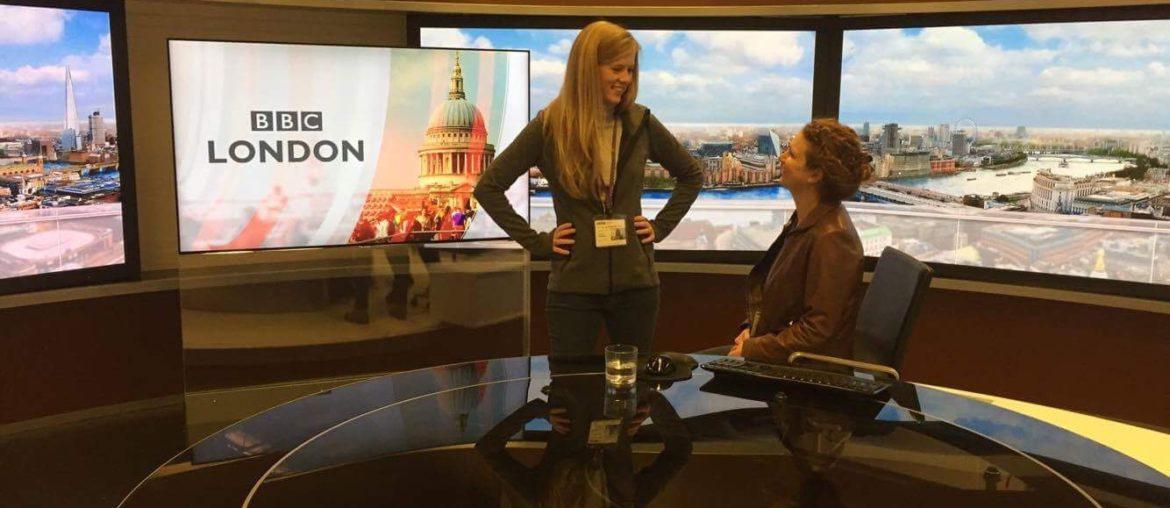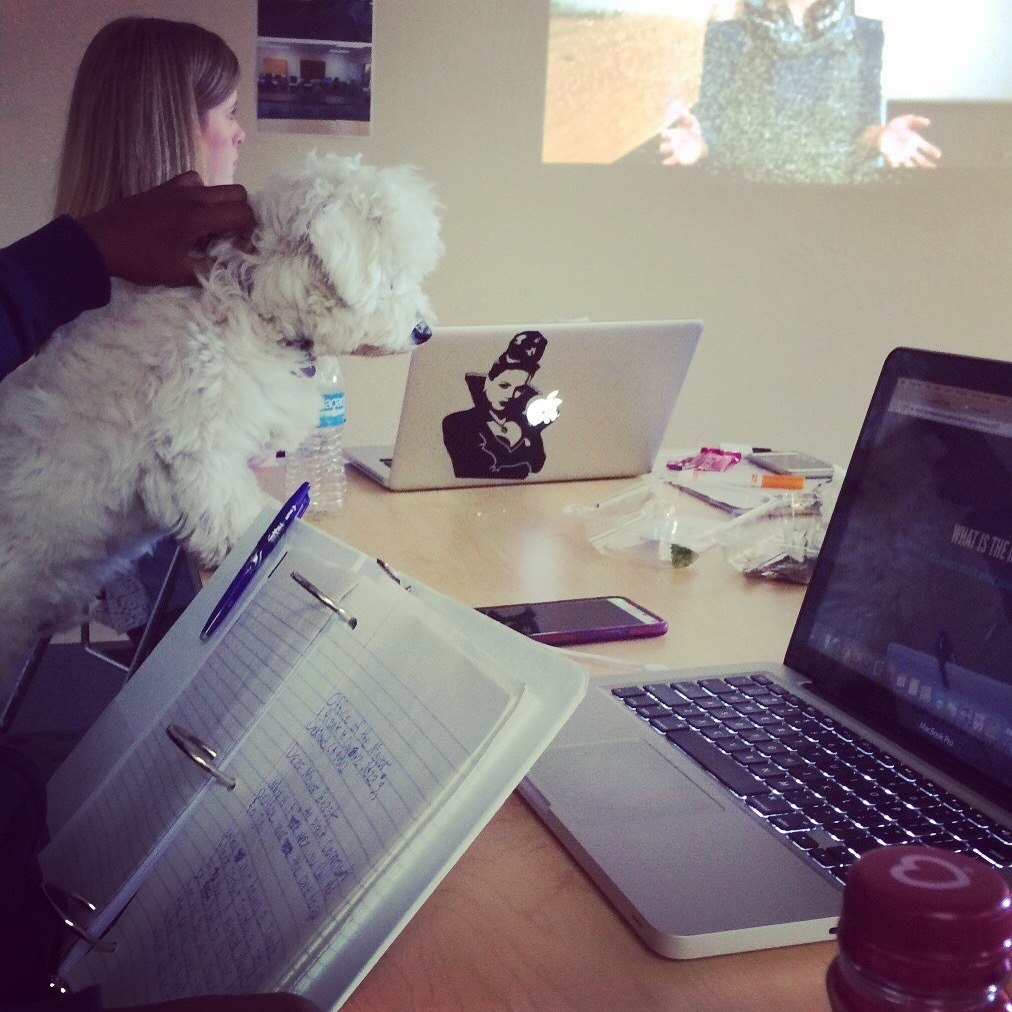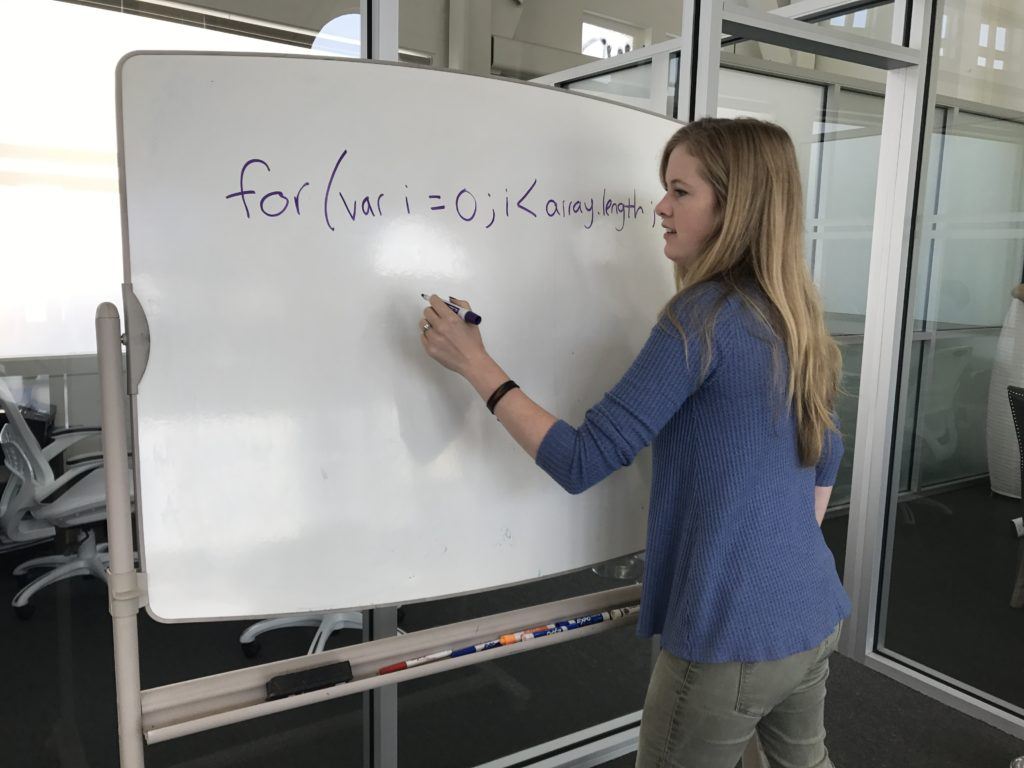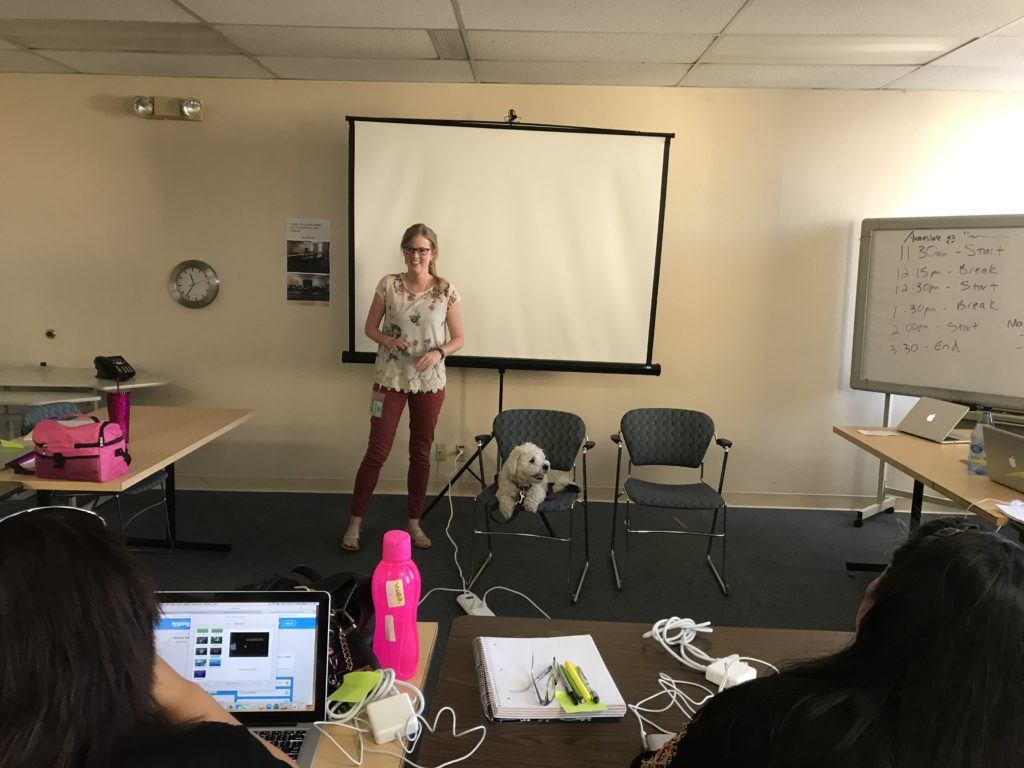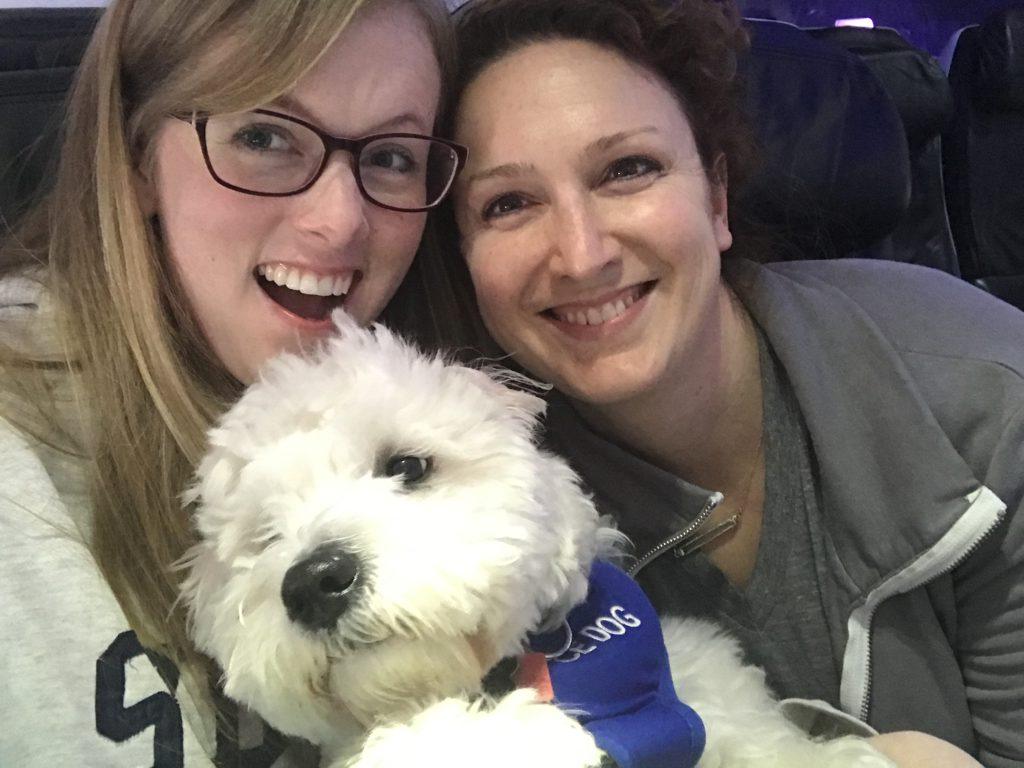In our litigious society, attorneys are rarely the heroes, rather they are usually the villains. However, in this story, the attorney is the hero. Her name is Jamie Beck and she is an attorney whose career took an unexpected turn when she decided to do some pro-bono (free) work for a victim of human trafficking. What happened next is a remarkable journey of service and compassion.
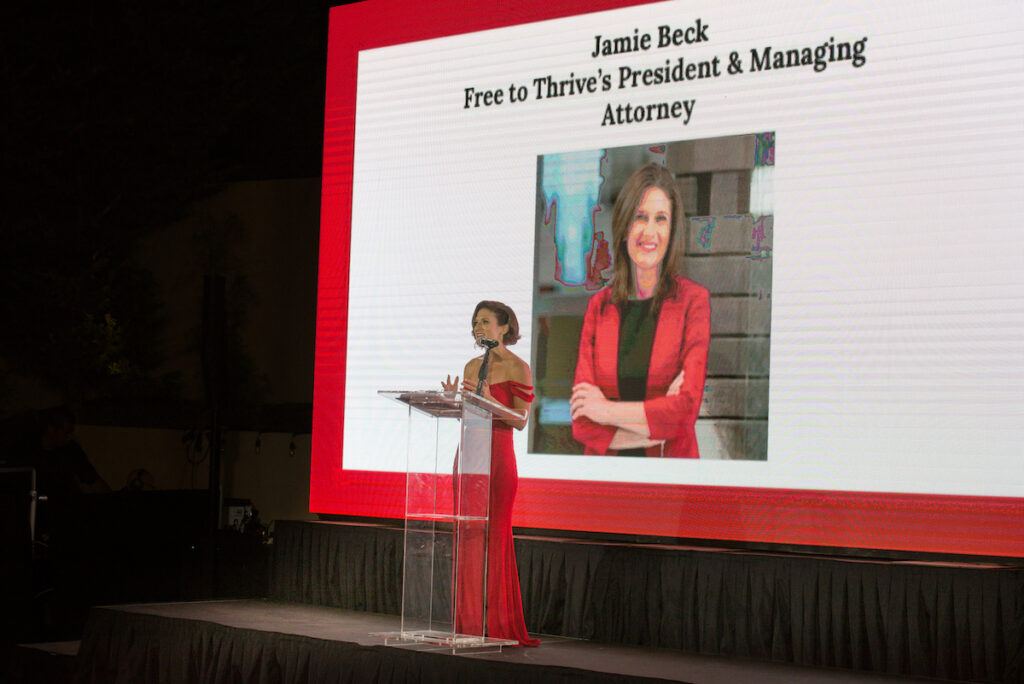
Join us today for an inspirational conversation with Jamie Beck, the Founder of the nonprofit Free to Thrive. Jamie shares with us an insight into human tracking and remarkable work she and her team are doing to help so many.
Here are a few highlights from our conversation:
Charity Matters: Tell us a little about what Free to Thrive does?
Jamie Beck: Free to Thrive helps human trafficking survivors with their legal needs. We also do policy advocacy, training and education. A big part of our training is to help educate the community about this issue through kind of more traditional trainings. We also produced two films to help the community learn about this issue. I’m so often surprised about how steep the learning curve is with human trafficking. This is not an issue we talk about as a community and most people don’t even know the basics of human trafficking.
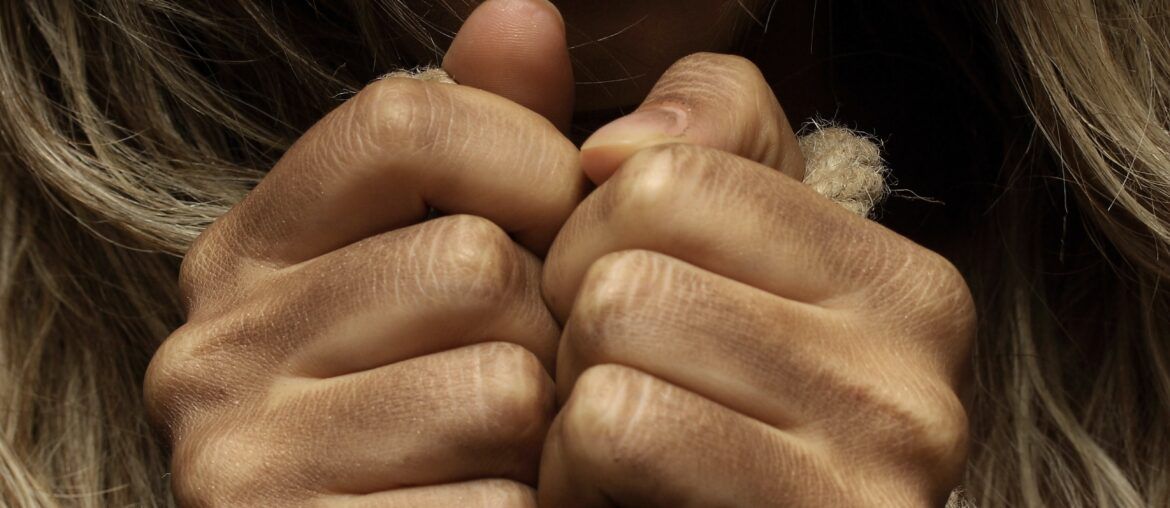
Charity Matters: Tell us a little about what Human Trafficking is?
Jamie Beck: Human trafficking is essentially exploiting another person. Generally speaking, it’s exploiting them for sex or labor. It can be other things as well. Really, it’s just taking advantage of someone and using them as a source of free labor. When we’re talking about retracting, it involves force, fraud, or coercion. When we’re talking about labor trafficking, or sex trafficking, it is any minor involved in the commercial sex. That’s human trafficking, regardless of force, fraud, or coercion. And an adult involved in any sort of commercial sex act requires force, fraud or coercion is human tracking.
Charity Matters: What was the moment you knew you needed to act and start Free to Thrive?
Jamie Beck: I was always very involved in the community growing up, helping out in ways big and small. And that’s something that I grew up with, that mentality of giving back. I really thought I would do that as a lawyer and that’s a huge part of why I went to law school.
I went to law school wanting to be a public interest lawyer. Like most law students, I had student debt but got a great opportunity law firm. I said, “I’ll work there for a couple of years, and pay down my student loans, and then I’ll figure out my path from there.” While I was there, the way that I filled my cup of this need to give back and to do some good in my community was through volunteer work and pro bono work at my law firm. That was actually the very beginning of what put me on this path.
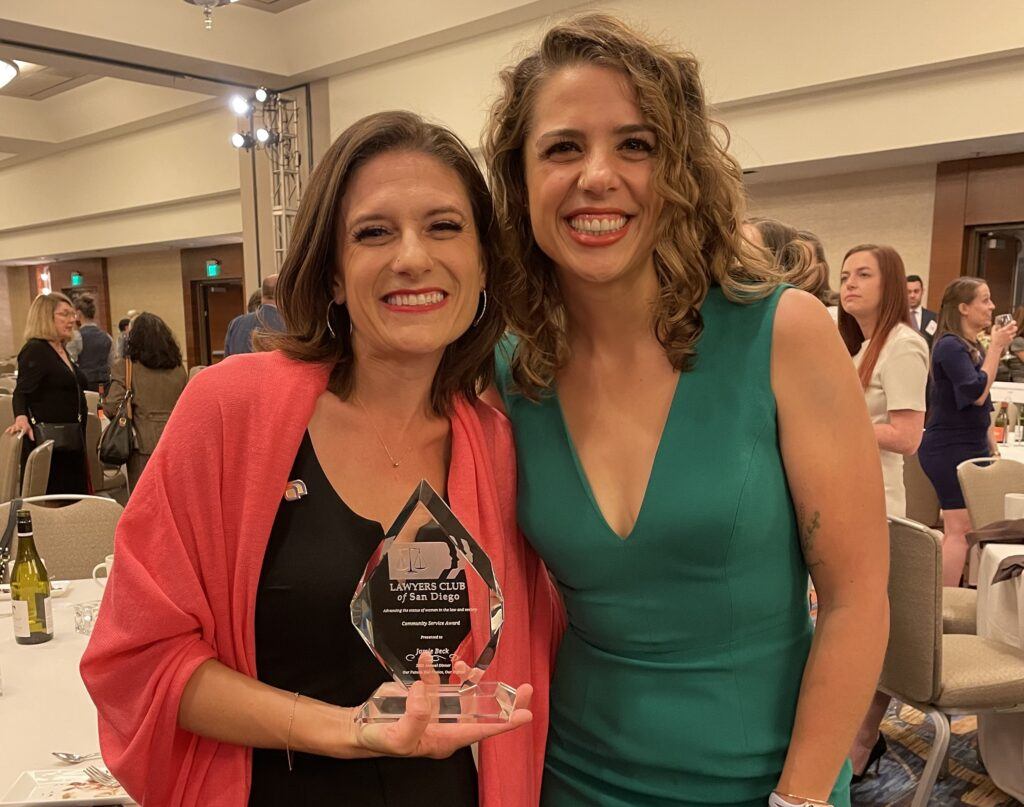
I was really involved in Lawyers Club of San Diego, and taking pro bono cases from local legal nonprofits. I first learned about human trafficking there and discovered there’s a huge need for lawyers to help survivors. And I was like, Okay, well, I’m a lawyer, I can help survivors. So, I took a pro bono case with a survivor who she had some criminal charges related to her trafficking. She came from a loving two parent home. She was very close with her middle class family, a very good student, and was just a normal teenager. Then she fell in love with an older guy and it was actually him and his family that exploited her.
There’s so much shame that happens, that she didn’t tell her family was going on. It just kept kind of pulling her further and further into this world. By the time she turned 18, he had complete control over her. She had been kidnapped at that point, and was no longer able to talk to her family. After I got to know her story, I helped her with these criminal charges. Essentially, the ultimate outcome of her criminal case was was an expungement. As a result, we were able to erase her record, or so we thought.
Charity Matters: What are your biggest challenges?
Jamie Beck: One of our challenges is legislative advocacy. In the case above the law and expungement didn’t clear her record. The girl went on to college and she’s trying to get a job and she couldn’t get a job because of her background. They were were running it and her record still showed. We learned there are these laws called vacatur laws that California didn’t have. So we we had this legislative roundtable where we pitch ideas to elected officials for new bills that will help survivors. Just two months later, in December, we pitched this a local state Senator who took up the bill. He said, “We’re going to pass a vacatures laws.” They did.
Shortly after, a request for proposal or a contract with the County of San Diego for somebody to provide free legal services to trafficking survivors presented itself. This really happened because there was a huge unmet need. Nobody was doing this work in San Diego. I definitely can’t take all the cases of all the survivors that need this help. We now have this new law. So we have all these survivors who not only need it now, but survivors for years who’ve needed this help, but never get it. So a huge backlog of cases. At this point, I’ve been involved in anti trafficking work for two or three years and this is now my passion.
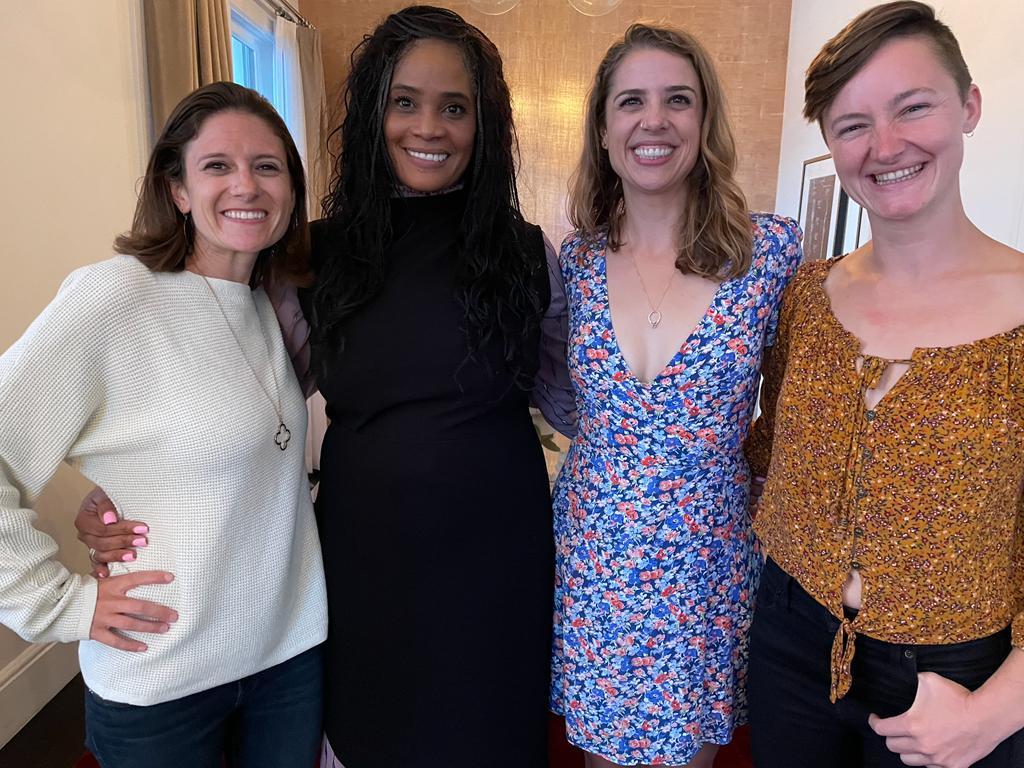 I applied for this funding. I had a name of a nonprofit, I filed articles of incorporation. I’ve created this nonprofit but I don’t have a board, I just have a name. I had a vision and I understood what the services that we’d offer and how we deliver them. We just didn’t have the funding to do it or the organizational structure to do it.
I applied for this funding. I had a name of a nonprofit, I filed articles of incorporation. I’ve created this nonprofit but I don’t have a board, I just have a name. I had a vision and I understood what the services that we’d offer and how we deliver them. We just didn’t have the funding to do it or the organizational structure to do it.
There was not enough time in the day, I was doing this by myself. We had no staff, we had some pro bono lawyers, and I had some volunteers, but it was just me. So I’m trying to do this by myself and try to get it started with enough very little funding. It was like drinking from a firehose. I think one of the hardest things about being a nonprofit is that there the need for your services. If you are doing something that is having an impact on the community, the need for your services almost always will outpace your capacity to fill it.
Charity Matters: What fuels you to keep doing this work?
Jamie Beck: What fuels me is truly our clients. I mean, they are so incredible. When I think about both their stories and what they’ve overcome pales in comparison to what I’ve experienced. So like on any hard day, I think about my clients and their strength and their resilience. I also think about the wins. We spend a lot of time at Free to Thrive, we have a lot of hard days, and we talk a lot about the wins because they’re so powerful. When we think about what does it mean to have this client’s record completely cleared? Or what does it mean for her to have a restraining order custody of her child? These are things that you just can’t quantify the impact on that person’s life, on their children’s life and on breaking generational cycles. It’s just it’s incredibly powerful.
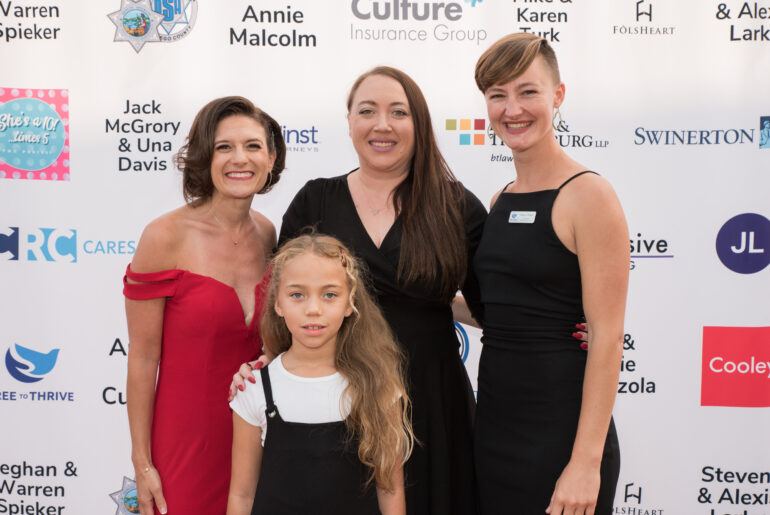
Charity Matters: Tell us what success you have had and what your impact has been?
Jamie Beck: So we we’ve been a nonprofit for six years serving clients for five years. You know, the first couple years are our numbers were so small because we’re trying to get up and running and learning how to do the work. We’re about to hit a huge milestone and just completed our 500th legal matter.
Charity Matters: If you could dream any dream for your organization, what would that be?
Jamie Beck: I have lots of dreams for Free to Thrive both big and small, short and long term. So the kind of big visionary dream is to be a global organization. To work on this issue, not just locally or regionally but on a on a global level because human trafficking is a global issue. I would love Free to Thrive to be to have a global footprint, and help survivors everywhere. You know, there’s such a huge unmet need for services for survivors
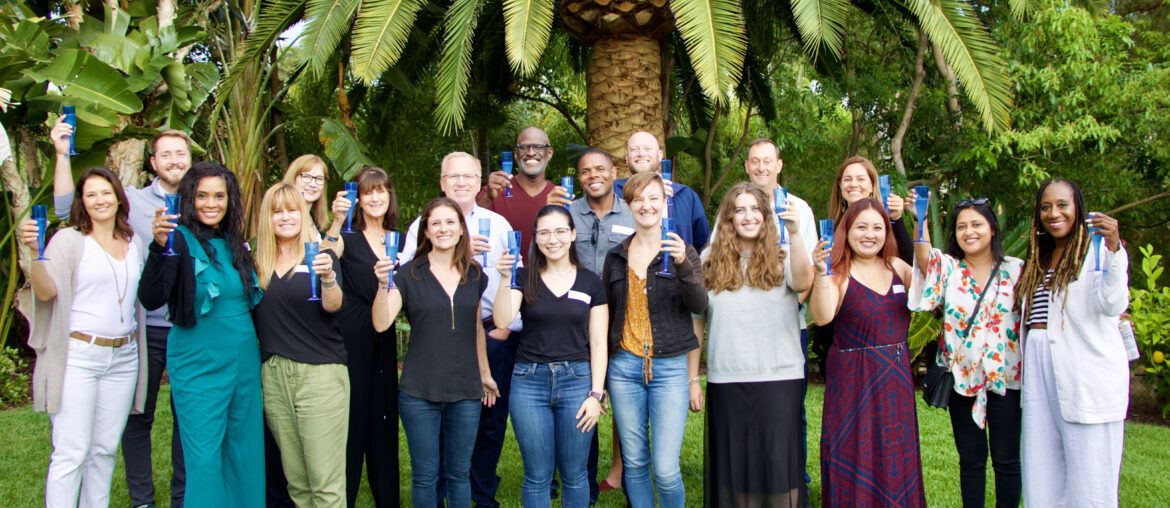
Charity Matters: What life lessons have you learned from this experience?
Jamie Beck: I’m learning my own strengths and weaknesses and growing as a leader. It’s one thing to run an organization and it’s another thing to have a staff of people, to be able to have a vision, lead them forward and support them.
Charity Matters: How has this journey changed you?
Jamie Beck: I’m just constantly learning and growing and finding how to how to be better and do better.
CHARITY MATTERS.
New episodes are released every Wednesday! If you enjoyed today’s episode, please connect with us:
- www.Charity-Matters.com
- On IG @Charitymatters
- Post a screenshot & key takeaway on your IG story and tag me @heidijohnsonoffical and @Charitymatters so we can repost you.
- Leave a positive review on Apple Podcasts
- Subscribe to new episodes each week!
YOUR REFERRAL IS THE GREATEST COMPLIMENT, IF YOU ARE SO MOVED OR INSPIRED, WE WOULD LOVE YOU TO SHARE AND INSPIRE ANOTHER.
Copyright © 2022 Charity Matters. This article may not be reproduced without explicit written permission; if you are not reading this in your newsreader, the site you are viewing is illegally infringing our copyright. We would be grateful if you contact us.

